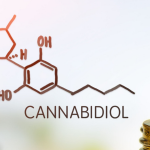Pediatric ADHD: Treatment with Multivitamins & Fish Oil
Tolle Causam
Erica Zelfand, ND
Suboptimal nutrition not only affects a child’s physical health; it also predisposes him to neurocognitive deficits such as attention-deficit/hyperactivity disorder (ADHD).1-3
ADHD is a common neuropsychiatric condition that tends to be early onset and enduring. It is characterized by developmentally inappropriate attention deficits, increased impulsivity, hyperactivity, and/or emotional deregulation. Needless to say, ADHD can significantly impair many facets of a child’s life4 and place great strain on her caregivers, teachers, and family members.
As is the case with many neuropsychiatric disorders, the causes of ADHD are multifactorial. Nevertheless, it is clear that nutrition plays a major role in both prevention and treatment of the disorder, as the levels of several nutrients – including iron, zinc, magnesium,5,6 vitamin D,7 iodine,8 vitamin B12,9,10 and omega-3 polyunsaturated fatty acids11,12 – have been shown to be lower in ADHD-affected children than in healthy controls.
High-quality daily multivitamins and fish oil supplements may therefore be of great value in the treatment of pediatric ADHD.
How Did We Get Here?
The changes in dietary practices over time, in addition to a loss of nutrient density in the soil and increased environmental toxic burden, have significantly compromised the nutritional power of our food supply.13,14
Studies have shown that young children in the United States fall short of the dietary guidelines for fruit and vegetable intake.15 Neuro-atypical children, such as those with ADHD, are at particular risk for inadequate nutritional intake. On account of the core pathology of the condition, children with ADHD may exhibit greater degrees of stubbornness, cravings, and aversions around food than other children; they may further lack the attention necessary to sit still through meals.16-18 The prescription medications commonly used to manage ADHD symptoms typically cause appetite suppression, which further challenges nutritional adequacy in these children.19
In a study exploring the connections between nutrition, cognition, and behavior, 1795 children with signs of malnutrition were followed over time and assessed at ages 3, 8, 11, and 17 years.20 The authors found that relative to the 1206 adequately nourished subjects, “the children with malnutrition signs at age 3 years… were more aggressive or hyperactive at age 8 years, had more externalizing problems at age 11, and had greater conduct disorder and excessive motor activity at age 17. The results were independent of psychosocial adversity and were not moderated by gender.”
The researchers further reported an exposure-response relationship between the severity of malnutrition and the degree of externalizing behavior at ages 8 and 17. Similar relationships were observed between malnutrition, low intelligence quotient (IQ), and externalizing behavior at ages 8 and 11.20
These findings connect early childhood nutritional deficiencies with cognitive and behavioral disturbances later in childhood and adolescence.
How Multivitamins Can Help
When we consider the nutrients typically contained in high-quality multivitamins, it becomes clear that these daily supplements have the potential to mitigate ADHD symptoms and support a child’s overall health and with minimal risk of harm. Children with ADHD often require targeted nutrients at therapeutic dose ranges; however, a multiple vitamin/mineral product is an easy place to start, and indeed a basic treatment guideline for the condition.
In the first fully blinded, randomized, controlled trial of medication-free children with ADHD,21 93 patients, ages 7 to 12, were randomized to receive either micronutrients (n=47) or placebo (n=46) for 10 weeks. Data were collected from clinicians, participants, parents, and teachers, examining a range of measures.
Although the children on the multivitamin demonstrated no improvements in hyperactive/impulsive symptoms, they did display reduced aggression, improved attention, and improved emotional regulation.21
While many of the nutrients in a multivitamin product may enhance a child’s health, some nutrients, in particular, have demonstrated their relevance in the treatment of ADHD and related conditions.
Key Nutrients
Vitamin D3
Vitamin D exerts anti-inflammatory, antioxidant, neuroprotective, and neurotrophic effects – actions that may directly oppose the pathogenesis of ADHD. This fat-soluble nutrient has also been demonstrated to facilitate serotonergic and dopaminergic functions, making it a further valuable player in pediatric (and adult) neurology.22
Unfortunately, 4 out of every 10 toddlers and children are deficient in the nutrient, according to the American Academy of Pediatrics (AAP).23 Children with ADHD also tend to be at greater risk of vitamin D deficiency than children who do not have the condition.7
Understanding the importance of vitamin D in immune system function, bone growth, and mental health, the AAP recommends starting vitamin D3 supplementation at 400 IU daily at birth and continuing through childhood.24 However, many multivitamins do not contain enough vitamin D; thus, additional supplementation may be warranted.
Magnesium
The validity of magnesium supplementation to help both children and adults living with ADHD, anxiety, stress, or other neurocognitive struggles is well established.25-27
Magnesium is involved in more than 300 essential metabolic reactions in the body, from energy production to DNA synthesis.28 While it is often (rightfully) appreciated for its effects on cardiovascular health, musculoskeletal health, and metabolic function,25,27 magnesium also facilitates central nervous system (CNS) communication and exerts a calming effect on the CNS.29
Magnesium is also an important component in serotonin production.29 It also interacts with norepinephrine and dopamine, the same neurotransmitters that have been implicated in the pathophysiology of ADHD.30,31
The manifestations of magnesium deficiency include reduced attention span, irritability, fatigue, lack of concentration, nervousness, and increased aggression32 – many of the same symptoms observed in those with ADHD. It no surprise, then, that magnesium has been shown to be of particular benefit to hyperactive children.33
Children with ADHD are more likely to be magnesium deficient than unaffected children.33,34 In fact, magnesium deficiency was observed in a whopping 95% of children with ADHD in one study,6 and other trials have demonstrated the value of magnesium in alleviating ADHD-related hyperactivity.35-37
In another trial, 72% of children with ADHD (18 out of 25) were found to be magnesium deficient; a significant correlation between hair magnesium levels and total IQ was further revealed. Supplementation with 200 mg of magnesium daily (in addition to standard medical treatment) for 8 weeks in these children improved their symptoms of inattention and hyperactivity by 77.7% and 88.9%, respectively.38
Although taking too much magnesium at once can osmotically cause loose stools, the safety profile of magnesium supplements is overall excellent.39
Iodine
While severe iodine deficiency and related cretinism have been nearly eliminated across the globe, the rate of iodine deficiency has been on the rise in the Americas. This is likely due to our decreasing intake of iodized salt and low intake of sea vegetables.40,41
A 2016 study of 89 children with ADHD found a shocking 71.9% to be iodine deficient, and further revealed a significant association between urinary iodine levels and hyperactivity.8
Iodine deficiency has been implicated in impaired cognitive function during childhood and adolescence.42-44 Iodine’s role in neurodevelopment during pregnancy and the first 1000 days of life is essential.45,46 Iodine deficiency, and the hypothyroidism it can cause, are both prenatal and postnatal risk factors for ADHD.47 Iodine deficiency may also beget hypothyroidism without accompanying abnormalities in thyroid hormone values, thus masking the cause of symptoms.48
B Vitamins
The B vitamins are essential cofactors for countless reactions in the body. In particular, vitamins B6 (pyridoxine), B9 (folate), and B12 (cobalamin) are key players in the neurotransmitter production that is essential for brain health and neurological function.49 B vitamin deficiency can manifest as fatigue, difficulty learning/focusing, and mood disturbances – many of the same symptoms found in ADHD.50-52
“The B’s” are also critical for detoxification. From pesticides and additives in our food supply, to the chemicals found in plastics and other household items and the over-prescription of pharmaceutical medications, today’s youth are exposed to a surprising number of toxicants. This, coupled with the increasing incidence of genetic mutations that compromise detoxification pathways, may place undue strain on the pediatric nervous system.53 This may explain the association between low brain levels of vitamin B12 and ADHD behaviors.9,54
B vitamins are water-soluble nutrients and therefore cannot be stored within the body. Regular intake is thus necessary to ensure optimal health.55
Essential Fatty Acids
Omega-3 polyunsaturated fatty acids (ω-3’s) are required for normal neurodevelopment and neuronal function. Although the exact mechanisms by which they mitigate the symptoms of ADHD have yet to be illuminated, it is clear that ω-3’s modulate inflammation and directly impact neuronal membrane fluidity and receptor function.56
Low ω-3 levels have been causally related to ADHD12,57 dyslexia, autism spectrum disorder, and other CNS-linked disorders, including poor cognition, depression, anxiety, and poor anger control.56 Because docosahexaenoic acid (DHA) accumulates in the brain regions associated with learning and memory, decreased levels of DHA are implicated in many developmental disorders.11
In a study examining the effect of fish-derived fatty acids on cognition and behavior,58 students with ADHD, ages 9 to 10 years, were randomized to receive a fish oil supplement or a 100 g serving of grilled fish daily for 12 weeks. While both interventions increased red cell total lipid DHA levels in the children, the effect was more prominent in the fish oil group, with increases of 72%, as compared to 64% in the grilled fish group. Both treatments improved Trail Making Test and Vanderbilt Assessment Scale scores in the children, but again, the fish oil outperformed grilled fish. The authors concluded, “Expanding the food fortification program with DHA-enriched fish oil should be considered as part of broader policy to improve child health.”
A meta-analysis of ω-3 studies published between 2000 and 2015 found that despite some contradictory results, the data showed overall that ω-3’s are a “successful treatment of ADHD symptoms” and that the dosage of stimulant medications could be reduced when used concurrently with ω-3’s.57
Because high blood levels of ω-6 relative to ω-3 lead to an overproduction of proinflammatory cytokines,59 and because the western diet is rich in ω-6’s and relatively poor in ω-3’s,60 the authors of another meta-analysis61 hypothesized that the ratios of certain types of fatty acids may be more important biomarkers than standalone levels. Indeed, the results of their literature review unveil that, as compared to controls, children and youth with ADHD have elevated ratios in the blood of both ω-6 to ω-3 and arachidonic acid (AA) to eicosapentaenoic acid (EPA) fatty acids. The authors speculated that previous clinical trials of ω-6 and ω-3 supplements may have demonstrated minimal efficacy in the treatment of ADHD12,62-65 on account of their analysis of these fatty acids in isolation.
As essential fats, ω-3’s cannot be synthesized by the human body and thus must be obtained from the diet and supplements. This strengthens the case for ω-3 supplementation in children with ADHD.66
SECS vs RUDE Test
In recommending supplemental and alternative ADHD treatments, practitioners can apply the SECS vs RUDE test, a guideline developed by researchers from Ohio State University.
According to the guideline, treatments that are Safe, Easy, Cheap, and Sensible (SECS) require less evidence than those that are Risky, Unrealistic, Difficult, or Expensive (RUDE).
Per this rule, the researchers conclude, “Two nutritional treatments appear worth general consideration: Recommended Daily Allowance/Reference Daily Intake multivitamin/mineral supplements as a pediatric health intervention not specific to ADHD and essential fatty acids … as an ADHD-specific intervention.”67
In other words: multivitamins and essential-fatty acids are 2 of the safest, easiest, cost effective, and sensible tools in ADHD treatment.
References:
- Suskind DL. Nutritional deficiencies during normal growth. Pediatr Clin North Am. 2009;56(5):1035-1053.
- Lutter CK. 4th Report – The World Nutrition Situation: Nutrition throughout the Life Cycle. Switzerland: United Nations ACC/SCN in collaboration with IFPRI; 2000. Available at: https://www.unscn.org/web/archives_resources/files/rwns4.pdf. Accessed March 17, 2020.
- Fanjiang G, Kleinman RE. Nutrition and performance in children. Curr Opin Clin Nutr Metab Care. 2007;10(3):342-347.
- Geissler J, Lesch KP. A lifetime of attention-deficit/hyperactivity disorder: diagnostic challenges, treatment and neurobiological mechanisms. Expert Rev Neurotherapeutics. 2011;11(10):1467-1484.
- Mahmoud MM, El-Mazary AAM, Maher RM, Saber MM. Zinc, ferritin, magnesium and copper in a group of Egyptian children with attention deficit hyperactivity disorder. Ital J Pediatr. 2011;37:60-67.
- Kozielec T, Starobrat-Hermelin B. Assessment of magnesium levels in children with attention deficit hyperactivity disorder (ADHD). Magnes Res. 1997;10(2):143-148.
- Sharif MR, Madani M, Tabatabaei F, Tabatabaee Z. The Relationship between Serum Vitamin D Levels and Attention Deficit Hyperactivity Disorder. Iran J Child Neurol. 2015;9(4):48-53.
- Kanık Yüksek S, Aycan Z, Öner Ö. Evaluation of iodine deficiency in children with attention deficit/hyperactivity disorder. J Clin Res Pediatr Endocrinol. 2016;8(1):61-66.
- Zhang Y. Decreased brain levels of vitamin B12 in aging, autism and schizophrenia. PLoS One. 2016;11(1):e0146797.
- James SJ, Melnyk S, Fuchs G, et al. Efficacy of methylcobalamin and folinic acid treatment on glutathione redox status in children with autism. Am J Clin Nutr. 2009;89(1):425-430.
- Gharami K, Das M, Das S. Essential role of docosahexaenoic acid towards development of a smarter brain. Neurochem Int. 2015;89:51-62.
- Hawkey E, Nigg JT. Omega-3 fatty acid and ADHD: Blood level analysis and meta-analytic extension of supplementation trials. Clin Psychol Review. 2014;34(6):496-505.
- Chang JC, Gutenmann WH, Reid CM, Lisk DJ. Selenium content of Brazil nuts from two geographic locations in Brazil. Chemosphere. 1995;30(4):801-802.
- Bormann FH, Likens GE, Fisher DW, Pierce RS. Nutrient loss accelerated by clear-cutting of a forest ecosystem. Science. 1968;159(3817):882-884.
- Fox MK, Gearan E, Cannon J, et al. Usual food intakes of 2- and 3-year old U.S. children are not consistent with dietary guidelines. BMC Nutr. 2016;2(67).
- Schmidt ME, Kruesi MJ, Elia J, et al. Effects of dextroamphetamine and methylphenidate on calcium and magnesium concentration of hyperactive boys. J Psych Res. 1994;54(2):199-210.
- Berlin KS, Lobato DJ, Pinkos B, et al. Patterns of medical and developmental comorbidities among children presenting with feeding problems: a latent class analysis. J Dev Behav Pediatr. 2001;32(1):41-47.
- Healy L, Forbes E, Rice J, et al. The risk of malnutrition in children with autism spectrum disorder. Arch Dis Child Educ Pract Ed. 2019 Dec 2:edpract-2019-317453. doi: 10.1136/archdischild-2019-317453.
- Kiddie JY, Weiss MD, Kitts DD, et al. Nutritional status of children with attention deficit hyperactivity disorder: a pilot study. Intern J Pediatr. 2010;2010:767318.
- Liu J, Raine A, Venables PH, Mednick SA. Malnutrition at age 3 years and externalizing behavior problems at ages 8, 11, and 17 years. Am J Psychiatry. 2004;161(11):2005-2013.
- Rucklidge JJ, Eggleston MJF, Johnstone JM, et al. Vitamin-mineral treatment improves aggression and emotional regulation in children with ADHD: a fully blinded, randomized, placebo-controlled trial. J Child Psychol Psychiatry. 2018;59(3):232-246.
- Saedisomeolia A, Samadi M, Gholami F, et al. Vitamin D’s molecular action mechanism in attention-deficit/hyperactivity disorder: a review of evidence. CNS Neurol Disord Drug Targets. 2018;17(4):280-290.
- American Academy of Pediatrics. Fighting Vitamin D Deficiency. May 26, 2018. Available at: https://www.aap.org/en-us/about-the-aap/aap-press-room/aap-press-room-media-center/Pages/Fighting-Vitamin-D-Deficiency.aspx. Accessed March 17, 2020.
- Jenco M. Study: 27% of infants meeting vitamin D guidelines. May 18, 2020. AAP News. Available at: https://www.aappublications.org/news/2020/05/18/vitamind051820. Accessed May 26, 2020.
- Boyle NB, Lawton C, Dye L. The effects of magnesium supplementation on subjective anxiety and stress – a systematic review. Nutrients. 2017;9(5):429.
- Gröber U, Schmidt J, Kisters K. Magnesium in prevention and therapy. Nutrients. 2015;7(9):8199-8226.
- Sartori SB, Whittle N, Hetzenauer A, Singewald N. Magnesium deficiency induces anxiety and HPA axis dysregulation: modulation by therapeutic drug treatment. Neuropharmacology. 2012;62(1):304-312.
- Linus Pauling Institute, Oregon State University. Magnesium. 2020. Available at: https://lpi.oregonstate.edu/mic/minerals/magnesium. Accessed March 16, 2020.
- Sinn N. Nutritional and dietary influences on attention deficit hyperactivity disorder. Nutr Rev. 2008;66(10):558-568.
- Cardosos CC, Lobato KR, Binfaré RW, et al. Evidence for the involvement of the monoaminergic system in the antidepressant-like effects of magnesium. Progr NeuroPsychopharm Biol Psychiatry. 2009;33(2):235-242.
- Gamo NJ, Wang M, Arnetern AF. Methylphenidate and atomoxetine enhance prefrontal function through alpha 2 – adrenergic and dopamine D1receptors. J Am Acad Child Adol Psychiatry. 2011;49(10):1011-1102.
- Huss M, Völp A, Stauss-Grabo M. Supplementation of polyunsaturated fatty acids, magnesium and zinc in children seeking medical advice for attention-deficit/hyperactivity problems – an observational cohort study. Lipids Health Dis. 2010;9:105.
- Mousain-Bosc M, Siatka C, Bali JP. Magnesium, hyperactivity and autism in children. In: Vink R, Nechifor M, eds. Magnesium in the Central Nervous System. Adelaide, Australia: University of Adelaide Press; 2011.
- Mousain-Bosc M, Roche M, Polge A, et al. Improvement of neurobehavioral disorders in children supplemented with magnesium-vitamin B6. I. Attention deficit hyperactivity disorders. Magnes Res. 2006;19(1):46-52.
- Starobrat-Hermelin B. The effect of deficiency of selected bioelements on hyperactivity in children with certain specified mental disorders. Ann Acad Med Stetin. 1998;44:297-314.
- Starobrat-Hermelin B, Kozielec T. The effects of magnesium physiological supplementation on hyperactivity in children with attention deficit hyperactivity disorder (ADHD). Positive response to magnesium oral loading test. Magnes Res. 1997;10(2):149-156.
- Ghanizadeh A. A systematic review of magnesium therapy for treating attention deficit hyperactivity disorder. Arch Iran Med. 2013;16(7):412-417.
- El Baza F, AlShahawi HA, Zahra S, et al. Magnesium supplementation in children with attention deficit hyperactivity disorder. Egyptian J Med Human Genetics. 2016;17(1):63-70.
- Mowry JB, Spyker DA, Brooks DE, et al. 2014 Annual Report of the American Association of Poison Control Centers’ National Poison Data System (NPDS): 32nd Annual Report. Clin Toxicol (Phila). 2015;53(10):962-1147.
- Pearce EN. Is iodine deficiency reemerging in the United States? AACE Clinical Case Reports. Winter 2015;1(1):e81-e82.
- Rosenfeld L. Discovery and early uses of iodine. J Chem Educ. 2000;77(8):984-987.
- Zimmermann MB. Iodine deficiency. Endocr Rev. 2009;30(4):376-408.
- Zhukov AO. Mental development disorders and attention-deficit syndrome caused by iodine deficiency: a clinical and epidemiological study. Zh Nevrol Psikhiatr Im S S Korsakova. 2007;107(6):4-16. [Article in Russian]
- Bryan J, Osendarp S, Hughes D, et al. Nutrients for cognitive development in school-aged children. Nutr Rev. 2004;62(8):295-306.
- Velasco I, Bath SC, Rayman MP. Iodine as Essential Nutrient during the First 1000 Days of Life. Nutrients. 2018;10(3):290.
- Abel MH, Ystrom E, Caspersen IH, et al. Maternal iodine intake and offspring attention-deficit/hyperactivity disorder: results from a large prospective cohort study. Nutrients. 2017;9(11):1239.
- Vermiglio F, Lo Presti VP, Moleti M, et al. Attention deficit and hyperactivity disorders in the offspring of mothers exposed to mild-moderate iodine deficiency: a possible novel iodine deficiency disorder in developed countries. J Clin Endocrinol Metab. 2004;89(12):6054-6060.
- Verheesen RH, Schweitzer CM. Iodine deficiency, more than cretinism and goiter. Med Hypotheses. 2008;71(5):645648.
- Bottiglieri T, Laundy M, Martin R, et al. S-Adenosylmethionine influences monoamine metabolism. Lancet. 1984;2(8396):224.
- Bottiglieri T. Homocysteine and folate metabolism in depression. Prog Neuropsychopharmacol Biol Psychiatry. 2005;29(7):1103‐1112.
- Linus Pauling Institute, Oregon State University. Folate. 2020. Available at: https://lpi.oregonstate.edu/mic/vitamins/folate. Accessed March 17, 2020.
- Linus Pauling Institute, Oregon State University. Vitamin B12. Available at: https://lpi.oregonstate.edu/mic/vitamins/vitamin-B12. Accessed March 17, 2020.
- Kern JK, Geier DA, Homme KG, et al. Developmental neurotoxicants and the vulnerable male brain: a systematic review of suspected neurotoxicants that disproportionally affect males. Acta Neurobiol Exp (Wars). 2017;77(4):269-296.
- James SJ, Melnyk S, Fuchs G, et al. Efficacy of methylcobalamin and folinic acid treatment on glutathione redox status in children with autism. Am J Clin Nutr. 2009;89(1):425-430.
- Brody T. Nutritional Biochemistry. 2nd ed. San Diego, CA: Academic Press; 1999.
- Grant R, Guest J. Role of omega-3 PUFAs in neurobiological health. Adv Neurobiol. 2016;12:247-274.
- Königs A, Kiliaan AJ. Critical appraisal of omega-3 fatty acids in attention-deficit/hyperactivity disorder treatment. Neuropsychiatr Dis Treat. 2016;12:1869-1882.
- Al-Ghannami SS, Al-Adawi S, Ghebremeskel K, et al. Randomized open-label trial of docosahexaenoic acid-enriched fish oil and fish meal on cognitive and behavioral functioning in Omani children. Nutrition. 2019;57:167-172.
- Simopoulos AP. Evolutionary aspects of diet: the omega-6/omega-3 ratio and the brain. Mol Neurobiol. 2011;44(2):203-215.
- Howard AL, Robinson M, Smith GJ, et al. ADHD is associated with a “western” dietary pattern in adolescents. J Atten Disord. 2011;15(5):403-411.
- LaChance L, McKenzie K, Taylor VH, Vigod SN. Omega-6 to omega-3 fatty acid ratio in patients with ADHD: a meta-analysis. J Can Acad Child Adolesc Psychiatry. 2016;25(2):87-96.
- Bloch MH, Qawasmi A. Omega-3 fatty acid supplementation for the treatment of children with attention-deficit/hyperactivity disorder symptomatology: Systematic review and meta-analysis. J Am Acad Child Adolesc Psychiatry. 2011;50(10):991-1000.
- Gillies D, Sinn JK, Lad SS, et al. Polyunsaturated fatty acids (PUFA) for attention deficit hyperactivity disorder (ADHD) in children and adolescents. Cochrane Database Syst Rev. 2012;2012(7):CD007986.
- Puri BK, Martins JG. Which polyunsaturated fatty acids are active in children with attention-deficit hyperactivity disorder receiving PUFA supplementation? A fatty acid validated meta-regression analysis of randomized controlled trials. Prostaglandins Leukot Essent Fatty Acids. 2014;90(5):179-189.
- Sonuga-Barke EJ, Brandeis D, Cortese S, et al. Nonpharmacological interventions for ADHD: systematic review and meta-analyses of randomized controlled trials of dietary and psychological treatments. Am J Psychiatry. 2013;170(3):275-289.
- Harvard TH Chan, School of Public Health. The Nutrition Source. Omega-3 Fatty Acids: An Essential Contribution. 2020. Available at: https://www.hsph.harvard.edu/nutritionsource/what-should-you-eat/fats-and-cholesterol/types-of-fat/omega-3-fats/. Accessed March 16, 2020.
- Hurt EA, Arnold LE, Lofthouse N. Dietary and nutritional treatments for attention-deficit/hyperactivity disorder: current research support and recommendations for practitioners. Curr Psychiatry Rep. 2011;13(5):323-332.

Erica Zelfand, ND, is an integrative family physician, medical writer/editor, and public speaker. She is deeply committed to a patient-centered, root-cause-oriented, nature-honoring approach to healing. After graduating from the National University of Natural Medicine (NUNM) with high honors, Dr Zelfand completed a CNME-accredited residency in family medicine at NUNM, followed by an additional 4 years of pediatrics training in a bustling primary care clinic in Oregon. Dr Zelfand loves sharing her knowledge, reverence for nature, and zesty sense of humor with her colleagues, clients, students, and audiences of all sizes worldwide. To learn more and connect, please visit www.DrZelfand.com.










